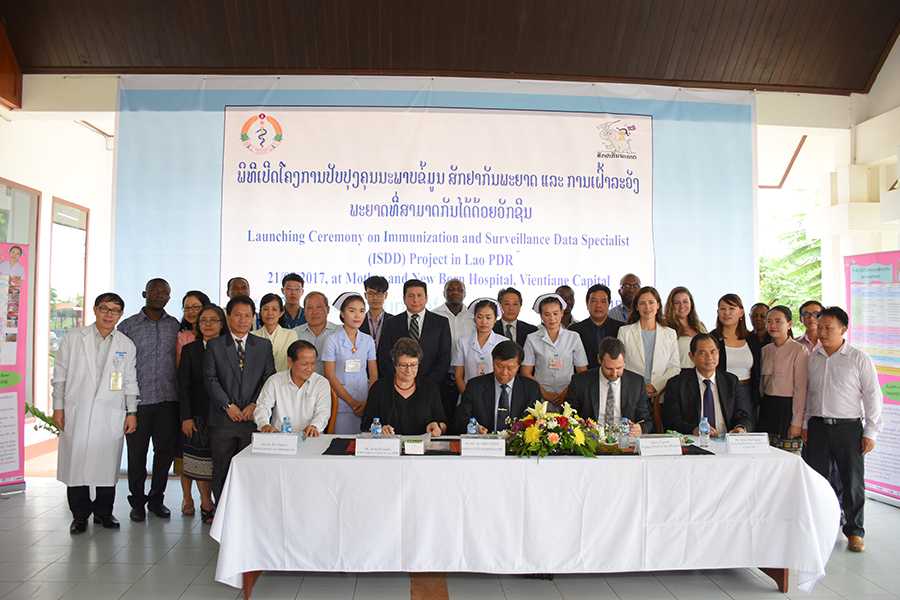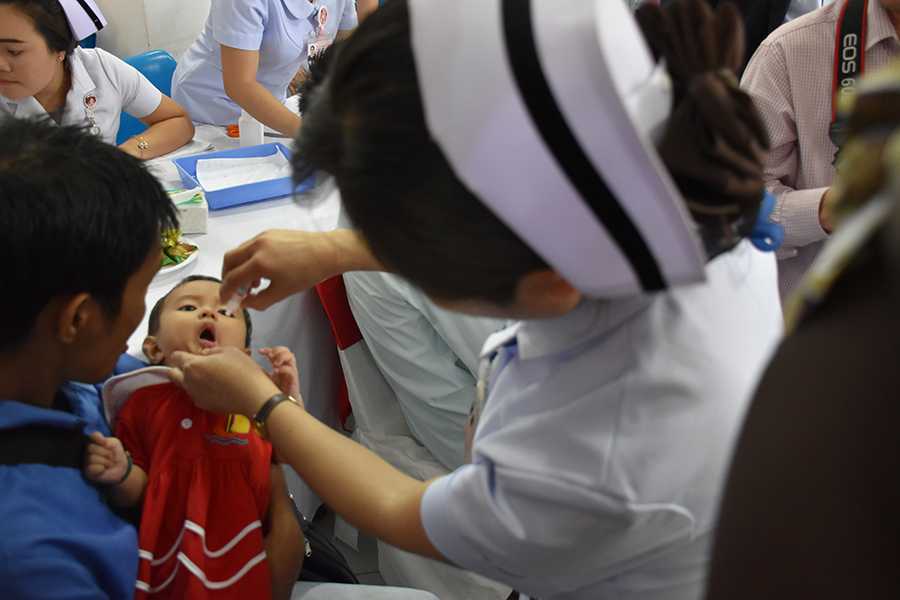STOP Goes Beyond Polio to Support Overall Immunization System Strengthening Around the World

The Stop Transmission of Polio (STOP) Program continues to prove its usefulness beyond polio eradication activities into broader immunization work. New emphasis on the importance of data quality, especially as it relates to the polio endgame strategy, has prompted the STOP Program to implement a novel strategy designed to improve data management, quality, and use at the lowest levels of the health information system. High quality data are needed for evidence-based decision making at the country level and to improve routine practices and service delivery. This strategy, the STOP Immunization and Surveillance Data Specialists (ISDS), allows participants to work with local health staff to identify specific data related challenges and to support the creation of sustainable solutions over the two years of the project. Recently, we launched this strategy in the Lao People’s Democratic Republic (Lao PDR).
The ISDS Project Gains Ground

This picture shows representatives from the Ministry of Health, US Embassy, CDC Atlanta, WHO Country Office, WHO WPRO, Vientiane County and Province health departments, as well as the STOP ISDS participants and LPITs, at the official launch of the STOP ISDS pilot in Lao PDR.
The primary focus of the STOP ISDS strategy is to improve the knowledge, skills, and practices of in-country staff supporting the routine management and use of both immunization and vaccine preventable disease (VPD) surveillance data. STOP ISDS activities will focus on data quality reviews, capacity building of local staff through training and mentorship to ensure the immunization and VPD surveillance information sy stems are functioning at the levels.
The STOP ISDS initiative in Lao PDR will place five international volunteers at the provincial-level, where they will work alongside five local counterparts for a period of two years. These teams will conduct activities to improve immunization and VPD surveillance knowledge, skills, and practices in the five deployment provinces: Vientiane Capital and Province, Oudomxay, Khammuane, Champassack and Xiengkhuang. After the completion of the project, the local counterparts trained through the STOP ISDS initiative will have the capacity to continue improving the immunization and VPD surveillance information systems as a part of the Ministry of Health’s work force.
The STOP ISDS project in Lao PDR is the second in the world, building off the early successes of the first STOP ISDS project launched in Kenya in July 2016. The CDC worked closely with the Lao PDR Ministry of Health and the World Health Organization to plan and implement the STOP ISDS project. The commitment and support from both have been instrumental in moving this project forward and realizing its launch in Vientiane on July 21st.
The STOP Program in Action

This picture shows a child is being vaccinated with OPV at the official STOP ISDS Lao PDR pilot launch ceremony.
The STOP Program at CDC has deployed more than 2000 volunteers to more than 75 countries over the last 18 years. STOP participants work with local Ministries of Health, WHO, and UNICEF colleagues to support the global polio eradication efforts by improving vaccine preventable disease surveillance, routine immunizations, outbreak response, communications and social mobilization, and data management in at-risk countries around the world.
The STOP Program routinely deploys STOP Data Managers, who provide support at the national level for data management and use. The STOP ISDS projects in both Lao PDR and Kenya are adapting this original model to better address key data quality challenges at levels of the health system, where they first arise.
The Global Impact for Public Health
As the public health community around the world prepares for polio eradication, with only cases of wild polio recorded as of August 8, 2017, strengthening workforce capacity for acute flaccid paralysis surveillance is of extreme importance. Initiatives like the STOP ISDS project in Lao PDR help leave a legacy of a trained workforce to help carry countries into a post-polio world.
Continuous workforce development is essential to improve public health systems globally. The US Government, through the CDC, shows its commitment to improving the well-being of children in Lao PDR and around the world through its partnership with the Ministry of Health and the World Health Organization in Lao PDR to implement the STOP ISDS strategy.
- Page last reviewed: August 31, 2017
- Page last updated: August 31, 2017
- Content source:
Global Health
Notice: Linking to a non-federal site does not constitute an endorsement by HHS, CDC or any of its employees of the sponsors or the information and products presented on the site.



 ShareCompartir
ShareCompartir